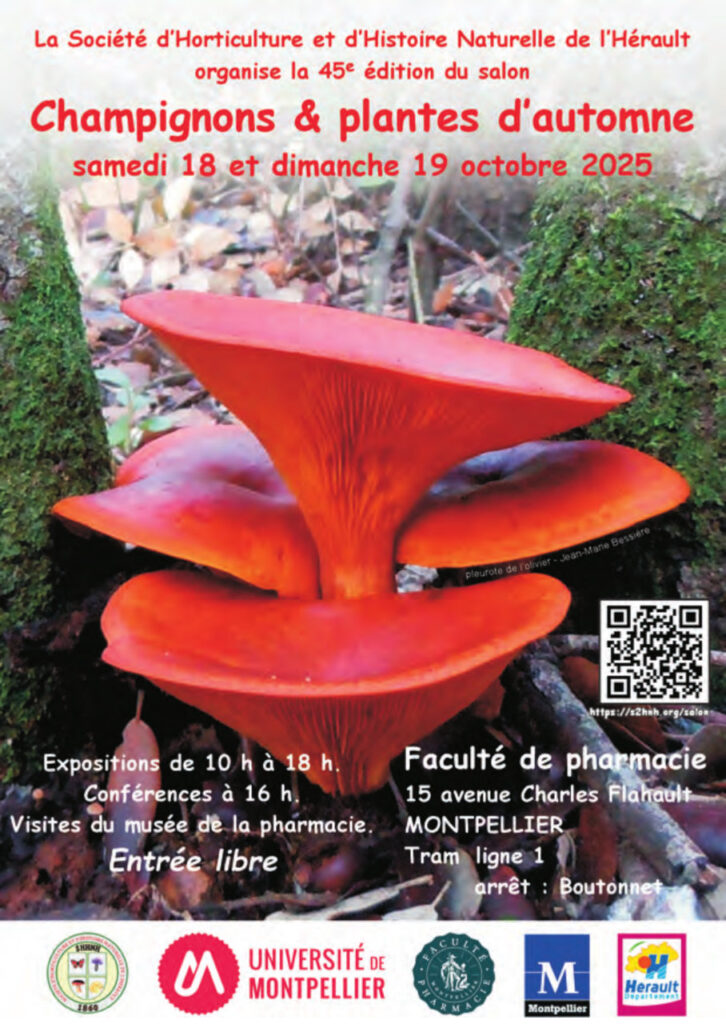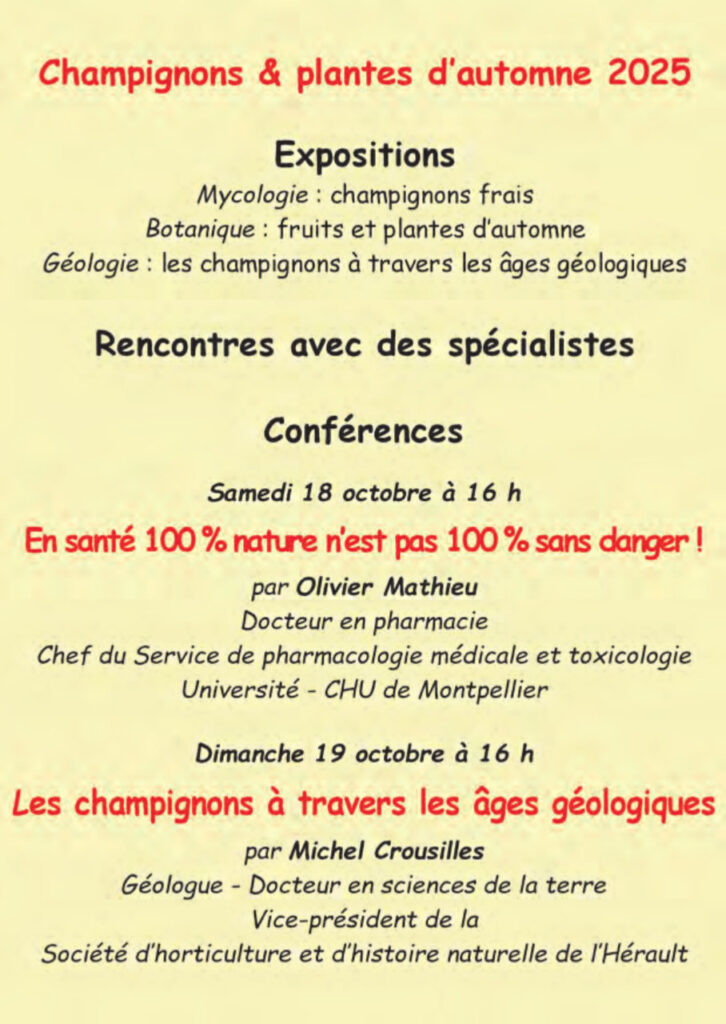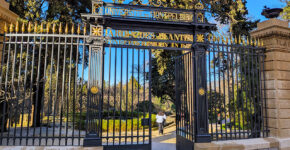“Mushrooms and Autumn Plants” Fair
This event has passed!
The45th edition of the Mushrooms and Autumn Plants Fair will feature:
Fresh autumn mushrooms with:
- an exhibition of over a hundred fresh mushrooms;
- a workshop on the confusion between edible species and toxic or even deadly species in our region;
- a workshop to determine the harvests brought in by the public;
- educational tools to help the public and students identify mushrooms (pharmacy, medicine, science, etc.).
Autumn fruits and flowers with:
- an exhibition of more than 200 recently harvested plants;
- a workshop to determine the harvests brought in by the public.
Mushrooms and plants will have been harvested by members of the Hérault Horticultural and Historical Society (SHHNH) and the Montpellier Faculty of Pharmacy (Laboratory of Botany, Phytochemistry, and Mycology).
The identification of mushrooms and plants collected or brought in by the public during the two days will be carried out by members of the SHHNH and academics.
The CD-ROM "The main edible mushrooms and their poisonous or deadly lookalikes," created by several members of the SHHNH, will be made available to the public.
Three card games created by a member of the SHHNH will allow the public, including students, to test their knowledge of mushroom identification, edibility, and toxicity.
The SHHNH will also display fungi from throughout geological history and insect displays.
Free guided tours of the Albert CIURANA Pharmacy Museum on Saturday afternoons, Sunday mornings, and Sunday afternoons:
Two lectures will be held in Lecture Hall A of the Faculty of Pharmacy in Montpellier:
- Saturday, October 18, 2025, at 4 p.m.: "100% natural health products are not 100% safe!" by Olivier MATHIEU, Doctor of Pharmacy, Head of the Department of Medical Pharmacology and Toxicology, Montpellier University-CHU.
- Sunday, October 19, 2025, at 4 p.m.: "Mushrooms through geological ages" by Michel CROUSILLES, geologist , Doctor of Earth Sciences, Vice President of the Hérault Horticultural and Natural History Society.


Receive a weekly summary of the UM agenda
* By entering your email address, you agree to receive a weekly summary of the UM calendar by email and acknowledge that you have read ourprivacy policy. You can unsubscribe at any time using the unsubscribe linkor by contacting us by email.
